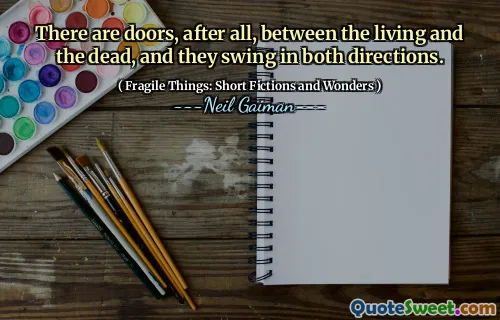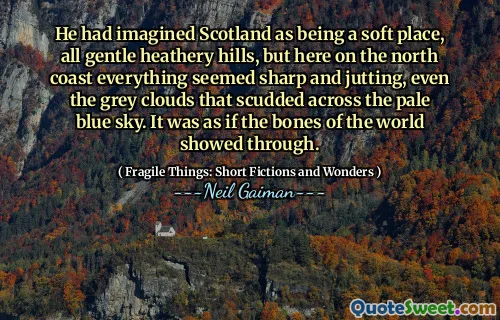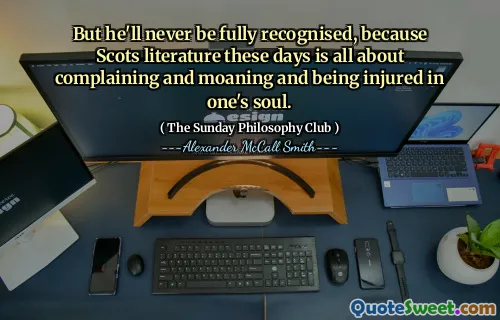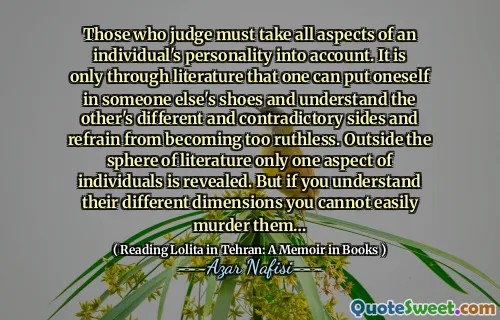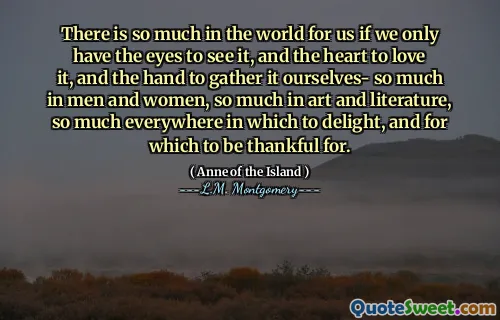
We think that tomorrow, unless we surrender, they may drop the moon on us. "You're joking." "Wish I was."
This quote conjures a vivid image of existential dread and the human tendency to perceive threats, whether real or fantastical, as overwhelming forces beyond our control. The notion of the moon being dropped on us symbolizes a calamity or catastrophe that is seemingly beyond reach, highlighting how humans often grapple with fears of the unknown or the uncontrollable. The dismissive response, "You're joking," followed by the wish, "Wish I was," underscores the possibility that the threat might be more imaginary than real, yet the fear persists. This kind of dialogue captures the surreal and often absurd nature of anxiety—how we sometimes blow minor threats out of proportion or see dangers looming where none exist. Neil Gaiman's writing often explores themes of wonder, fear, and the hidden depths within ordinary realities, making this quote resonate as a reflection on how human beings confront their fears, whether rational or not. It invites us to consider how much of our worry stems from perception and imagination, and how sometimes, acknowledging these fears is half the battle. The metaphor of the moon can be viewed as a symbol of a great, inevitable force—perhaps fate, death, or societal pressures—that we either surrender to or battle against. Recognizing the absurdity or the surreal nature of our fears can sometimes serve as a form of liberation. Overall, the quote touches on the fragile boundary between reality and imagination, encouraging a contemplative look at how we cope with the threats and uncertainties that life presents us.
